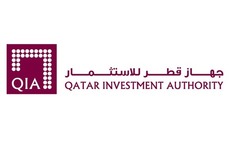
China operating partners: Control candidates
As the nature of private equity in China has evolved, so have firms' needs in terms of operational talent. The challenge is finding - and then retaining - the right person for the job
The appointment of Dr. Dahai Yu to Advent International's operating partner program last October is intended to offer the firm greater insight into China's chemicals sector. In addition to supporting the investment team, Yu will serve as a resource to portfolio companies, including Allnex, a supplier of coating resins and additives.
He is the latest in a string of China-based recruits to Advent's growing network of industry experts. The firm can also call on the talents of Michael Ming-Yue Zhu, formerly country manager for Belgian chemicals and plastics business Solvay, and William Tsao who headed DuPont's performance coating business in China.
Advent is one of a number of GPs to recognize the growing importance of operating partners in China. This is not just a function of a broader emphasis on operational value-add, but also a reflection of the growing appetite for majority deals in China. The trend is still in its nascent stages, but AVCJ Research data indicates a pick-up in activity. A total of $5.3 billion went into 29 deals in 2014. This compares to $2.1 billion deployed in 23 control deals in 2009 and 2010 combined, although the global financial crisis was an extenuating factor.
With GPs being able to exert greater control on their investments, more appreciate the value of strong operating partners. However, demand for such individuals outstrips supply, promoting concerns as to where this talent and can be found, and how it can be retained.
"Many firms that didn't necessarily have operating partners before are now hiring," says James Dubow, Asia managing director at Alvarez & Marsal. "Some hire outright, and some have relationships with executives in the market. Years ago it just wasn't a priority for most private equity firms, but that has changed."
International exposure
A number of the larger GPs in China have been building up in-house capabilities for some time. A survey of China-based private equity operating partners conducted by PwC last year helps illustrate how important their role has become.
Among the leading 40 firms in China and Hong Kong, over 40% have some portfolio management capabilities, whether in strategy, operations, or finance. Meanwhile, portfolio management specialists account for 18% of the private equity firms professional staff. However, where executive search firms are seeing the most growth in their PE business is among younger, mid-cap funds seeking to add their capabilities.
"We are seeing a lot of newer funds, and cross-border funds, looking for executive talent to work in portfolio companies and bring brands into China or try to take Chinese concepts internationally," says Chris Contino, a principal with Derwent Executive Search in Shanghai.
As a result, there is an increasing demand for professionals in China with competence and experience on an international level. For example, where a fund or an investment has a cross-border angle, PE firms want to hire executives who have worked with multinational companies (MNCs). The PwC survey found that portfolio operating partners and managers working with leading private equity firms already tend to have international backgrounds, with 59% having spent time with MNCs and 82% having been educated outside of China.
"We have seen Chinese companies become more acquisitive but there is still a hesitancy from some management teams to look at transactions in Europe and the US because some say ‘We don't have the experience, we don't have the management teams,'" says Michael Murphy, managing director with Alix Partners in Hong Kong. "So there is a need for M&A guys who can fit in China, but have experience of rolling up and looking for targets in the US."
International credentials aside, many industry participants claim to have difficulty finding people to fill senior positions below the C-suite in portfolio companies. Alvarez & Marsal‘s Dubow explains that this is particularly the case where sector-specific skills and experience are involved.
"For instance, a retail organization in China that hasn't operated at the level of international best practice may want to hire executives that have worked in other international markets," he says. "These are the hardest roles to fill because there is often a shortage when it comes to specialized skills."
This is particularly the case in high-growth sectors such as healthcare, technology and consumer goods, where executive search professionals report a dearth of talent relative to demand. Michael Di Cicco, a partner with Heidrick & Struggles, recalls a recent situation where is he was looking for someone to take on a senior role at a PE-backed clean energy business.
"We went through four different finalists and it took us nearly nine months to find a person who was a great fit for the fund, who had the industry expertise and the track record," he says.
Relationship-building
Di Cicco stresses that finding operating partners goes beyond ticking boxes marked qualifications and experience. The nascent flow of control investments in China frequently features succession-planning solutions. The success of an investment can depend on finding people who are able to manage relationships with the founding families that are transitioning out of their companies.
Derwent also emphasizes the importance of personal chemistry between investment executives, operating partners and founders, especially in situations where the founder retains an interest in the business. "There may be heaps of great Chinese executives with awesome experience, or tons of Westerners who speak fluent Mandarin, but at the end of the day it comes down that one-on-one relationship, and establishing that rapport," he says.
The challenge that remains is retaining that talent once you have found it. Dubow points out that while the talent pool is deepening, increasing demand means it is never deep enough. The level of compensation, and equity upside, expected has therefore gone up.
"If you look at the top managers of many companies they have very competitive packages and it can be difficult to attract them," says Dubow. "I think the major issue now is the competition for talent. Right now it is a seller's market and that will continue for the foreseeable future."
Latest News
Asian GPs slow implementation of ESG policies - survey
Asia-based private equity firms are assigning more dedicated resources to environment, social, and governance (ESG) programmes, but policy changes have slowed in the past 12 months, in part due to concerns raised internally and by LPs, according to a...
Singapore fintech start-up LXA gets $10m seed round
New Enterprise Associates (NEA) has led a USD 10m seed round for Singapore’s LXA, a financial technology start-up launched by a former Asia senior executive at The Blackstone Group.
India's InCred announces $60m round, claims unicorn status
Indian non-bank lender InCred Financial Services said it has received INR 5bn (USD 60m) at a valuation of at least USD 1bn from unnamed investors including “a global private equity fund.”
Insight leads $50m round for Australia's Roller
Insight Partners has led a USD 50m round for Australia’s Roller, a venue management software provider specializing in family fun parks.







